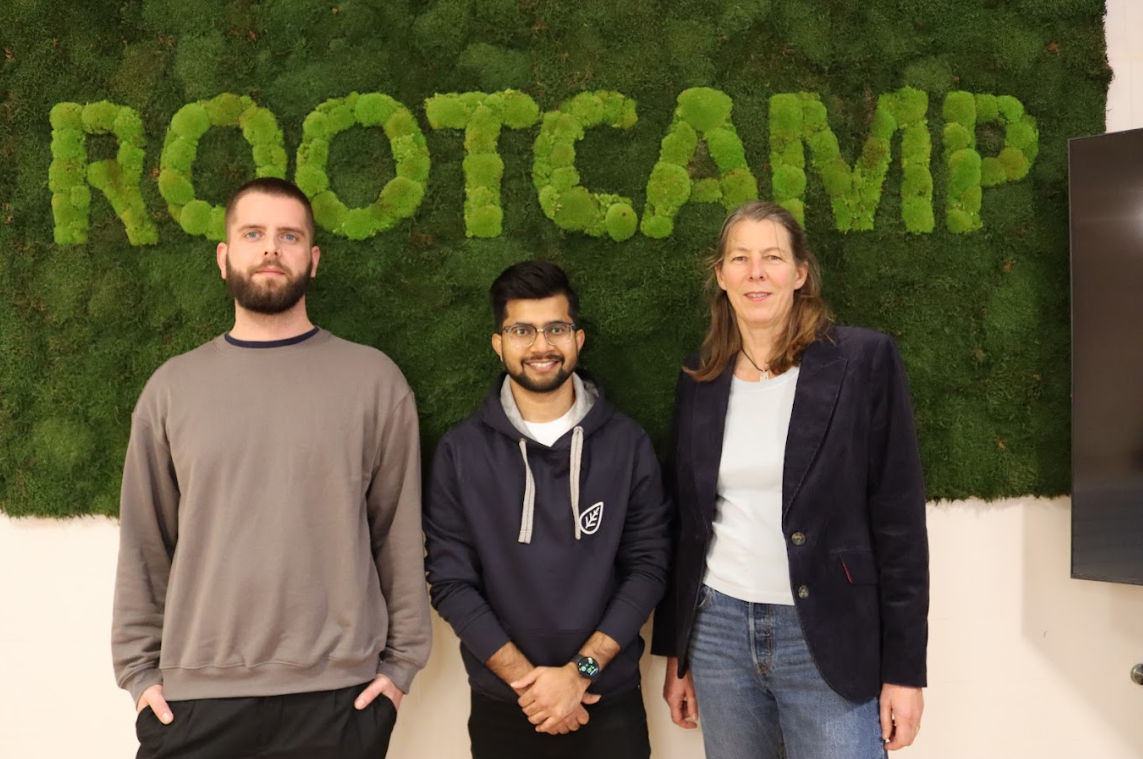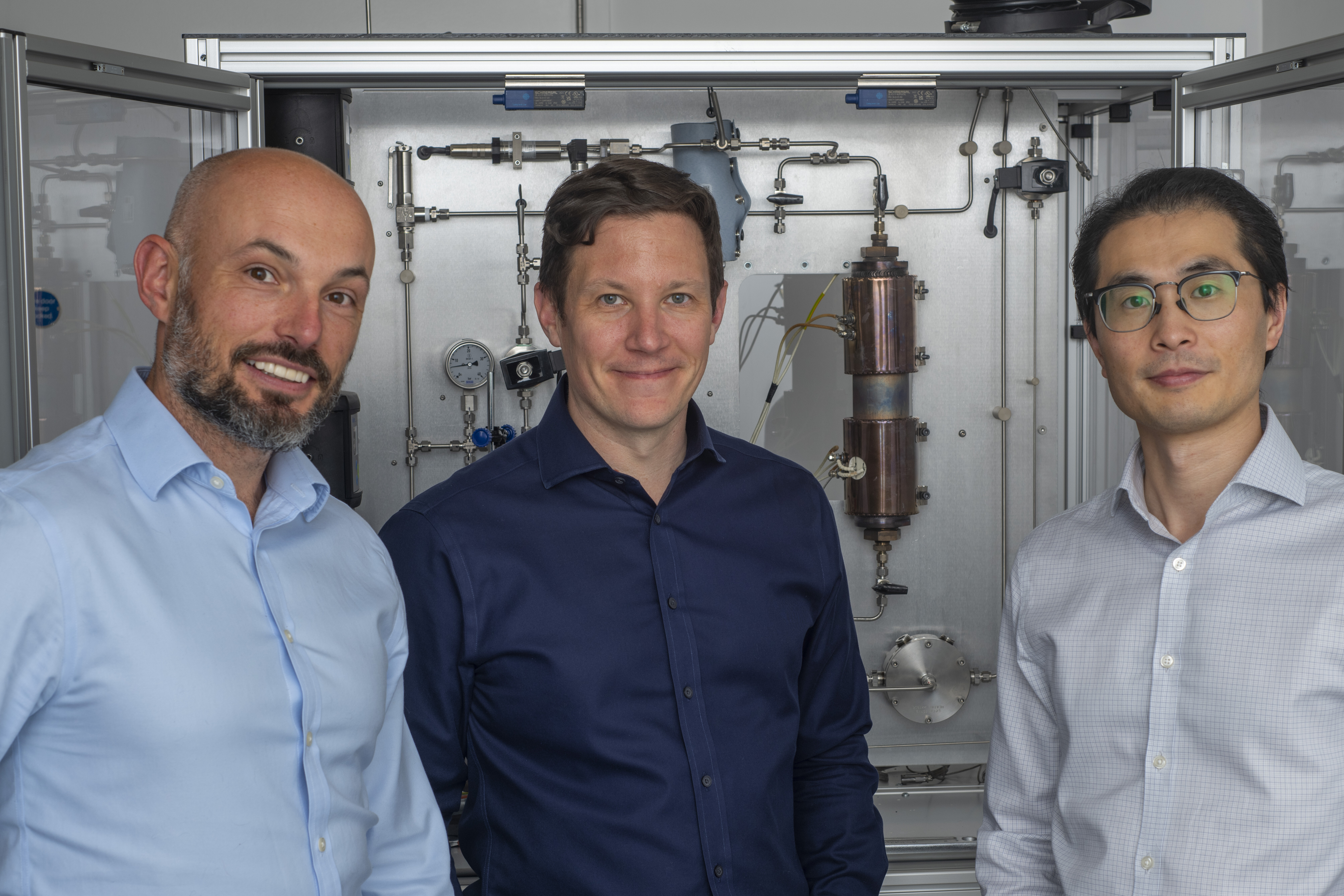As part of the Desafía Agtech Germany program, we are supporting ZETRACK in establishing its presence in the German market. In the following interview, ZETRACK explains what sets the ZETRABOT apart from other machinery solutions, why now is the moment for electric and autonomous tractors and what types of partnerships the company aims to build in Germany through the Desafía Agtech Germany program.
2 min read
ZETRACK The First Electric BaaS Tractor Built for Autonomy
By Linh Pham on Dec 4, 2025 4:43:58 PM
Topics: Startup Bios agriculture agtech
4 min read
8 innovative AgTech startups you should know
By Elisabed Lejava on Sep 24, 2025 10:47:04 AM
RootCamp, in collaboration with DLG and Rentenbank, is once again spotlighting the future of food, farming and agriculture with the RapidFire Startup Competition, a fast-paced event at the Inhouse Farming – Feed & Food Convention 2025 in Hamburg.
Topics: Startup Bios startups RootCamp sustainability
4 min read
RootCamp enters the next round: Batch #7 Solutions for sustainable water, agriculture, and circular economy
By Linh Pham on Aug 25, 2025 2:34:43 PM
With Batch #7, the RootCamp innovation hub from Hannover is starting a new round, welcoming six promising startups into its accelerator program. Over the coming months, the selected teams from Germany, Serbia, Latvia, Belgium, and France will receive targeted support to further develop their technologies, gain access to expertise and investors, and seize the opportunity for pilot projects with industry partners.
Topics: Startup Bios agriculture RootCamp 2025 bioeconomy
2 min read
WaterTech Challenge: Funded Watertech Startups in 2025
By Linh Pham on Aug 7, 2025 4:49:59 PM
Water scarcity, aging infrastructure, and tightening environmental regulations are pushing water technologies into the spotlight for investors around the globe. After years of moderate attention, the WaterTech sector saw a record-breaking year in 2024 and the trend is continuing in 2025. Innovations now range from smart leak detection and AI-driven optimization to lithium recovery and the removal of persistent pollutants from wastewater.
Topics: Startup Bios Venture Capital
4 min read
7 Water Tech Startups you should know in 2025
By Mario Verbeek on Mar 6, 2025 9:43:22 AM
Water is essential to all life, and its efficient management has become a key challenge for sustainability in today's world. According to the United Nations (UN Water, 2021), by 2025, nearly two-thirds of the global population could face water shortages. Many industries, particularly in agriculture, energy, manufacturing, and food processing, are some of the largest consumers of freshwater. Inefficiencies in water management, such as outdated infrastructure and wasteful usage, exacerbate water scarcity, making it increasingly difficult to meet growing demand.
Topics: Startup Bios agriculture innovation
3 min read
VCG.AI: AI Platform for Faster Circular Product and Business Development
By Liza Ziva on Feb 24, 2025 1:14:50 PM
VCG.AI offers the Value Chain Generator, a platform that helps companies transform organic byproducts and waste into valuable resources. Leveraging artificial intelligence and extensive databases, the platform identifies suitable waste materials and evaluates hundreds of conversion technologies and business models. The goal is to create profitable and sustainable circular solutions for industries such as agriculture, food, and forestry while reducing their carbon footprint. Jon Goriup, co-founder & CEO VCG.AI, answered our questions and described the main idea of the startup.
Can you explain, in simple terms, what your platform offers and how it works?
VCG.AI is an AI platform for companies to develop and launch circular products and business models faster and more efficiently. Our proprietary AI achieves this by analysing millions of global data points in real-time— technological and scientific advancements, market trends, feedstock availability, and active companies in the field. This enables the development of technically viable and profitable circular products and business models based on the latest global intelligence.
By connecting feedstocks, suppliers, technologies, and market applications, VCG.AI makes it easier to develop new circular products, find high-value uses for industrial by-products, and uncover actionable circular market opportunities. This reduces time and costs while increasing the success rate of circular innovations. Essentially, we provide centralised data intelligence to turn circular economy ideas into viable business solutions.
What specific challenges did the companies you worked with face before using vcg.ai?
Developing and launching bio-based circular products using traditional methods often fails due to several key challenges.
Rapid technological advancements, shifting markets, and evolving regulations make it difficult for companies to stay ahead. R&D demands significant time and financial investment, yet many organisations lack critical data on feedstock availability, novel technologies, and market demand for new materials.
As a result, many circular products and businesses struggle to succeed, and numerous innovations never reach the market. VCG.AI removes the guesswork, providing companies with data-backed strategies to develop circular products and business models that are market-ready and commercially viable.
Could you share a specific example from your case studies that demonstrates how your platform works and delivers measurable impact?
One of our clients, a large biorefining company, wanted to find higher-value applications for their by-products. They used VCG.AI to gain insight into the currently most relevant value-adding technologies for their feedstock, market trends, and the highest-paying processors for their materials.
With global circular intelligence at their fingertips, they received a directly applicable strategy— identifying which feedstocks to sell, to whom, and which technologies to invest in to maximise their future returns. By leveraging VCG.AI, they will implement viable circular initiatives with maximum time and cost efficiency, achieving results in months rather than years.
You currently focus on Europe with plans to expand into the USA and Latin America. Why exactly these countries?
Our solution is already used by industry leaders, R&D institutions, investors, and public authorities in 15 European countries. In the coming years, we plan to expand to the U.S. and Latin America, where demand for accelerating the circular bio-based industry is growing fast, and feedstock availability is there to support the industrial-scale deployment of circular business models. We also have strategic market partners in these regions, which will help us enter these new markets more smoothly.
With plans to begin fundraising in Q3 2025, what are the next milestones you hope to achieve with the funding?
Our next funding round, planned for Q3 2025, will focus on strengthening our technological advantage, developing solutions for a broader scope of industries, and supporting our expansion beyond Europe in the coming years.
What opportunities do you see in the German market and being a part of the RootCamp acceleration program?
Germany is one of our core strategic markets, with well-developed, relatively mature, and well-connected industries. The transition to a circular economy in such markets can drive economic growth, create new green jobs, and unlock new opportunities. RootCamp Accelerator and its excellent mentors are opening new doors for us, helping to enhance our recognition and market access in our key markets.
Join Join our program and get equity-free support with a grant to help bring your idea to life
- application deadline is on 19th of March. Apply here.
Topics: Startup Bios Interview
4 min read
Open Climate Solutions Explores Seaweed to Cut Greenhouse Gas Emissions
By Liza Ziva on Feb 18, 2025 3:46:50 PM
Open Climate Solutions develops and implements nature-based climate protection measures that reduce greenhouse gas emissions. They focus on projects that combine regenerative aquaculture with agriculture to restore coastal ecosystems, improve soil quality, and create sustainable jobs. The startup adopts open-source principles, making knowledge and technologies freely accessible to accelerate the spread of effective climate protection solutions. Discover how this brave team uses seaweed to cut emissions and promote biodiversity.
Can you explain why you chose seaweed? What is the power of Seaweed in Agriculture?
We chose seaweed because it is a highly sustainable and regenerative resource that offers significant benefits for agriculture. Our biostimulant is derived from novel seaweed species that are regeneratively cultivated, rather than wild-harvested. This ensures a sustainable and renewable source of biomass, avoiding the exploitation of natural marine ecosystems.
By cultivating seaweed instead of harvesting it from the wild, we can tightly control and monitor the quality of our feedstock. This enhances product quality by optimizing cultivation conditions to boost bioactive compounds. It also improves consistency and predictability in crop performance, tackling a common challenge with biological inputs.
Seaweed is a natural biostimulant, rich in polysaccharides, phytohormones, trace minerals, and antioxidants, which improve plant resilience, increase nutrient use efficiency, and enhance soil health. Unlike conventional fertilizers, our seaweed-based biostimulant helps crops withstand stress conditions such as drought and poor soil quality while reducing reliance on synthetic inputs.This makes our solution scalable, regenerative, and farmer-friendly, providing a reliable alternative for improving agricultural productivity in a sustainable way.
How do your seaweed farming and biostimulant production support regenerative carbon removal and ecosystem restoration while remaining economically viable for farmers?
Our mission is to develop a regenerative agricultural solution that not only supports farmers but also removes carbon and restores ecosystems. As we scale, the environmental benefits grow—improving soil health, strengthening crop resilience, enhancing marine biodiversity, and increasing carbon sequestration.
Seaweed plays a key role as a natural carbon sink, absorbing significant amounts of CO₂ as it grows. After extracting bioactive compounds for our biostimulant, we convert the remaining algae residue into biochar, a stable form of carbon. Since this biochar comes from regeneratively cultivated seaweed, it represents a truly additional carbon removal solution.
Our approach to regenerative aquaculture prioritizes farmed seaweed over wild harvesting, helping to preserve marine ecosystems while improving water quality and reducing eutrophication. At the same time, regenerative agriculture benefits from stronger, more resilient crops, reduced reliance on chemical inputs, and lower agricultural emissions.
By integrating carbon removal, soil health, and economic sustainability for farmers, we are building a scalable, circular system where regenerative seaweed cultivation directly drives agricultural and environmental impact. Linking regenerative aquaculture with regenerative agriculture strengthens food system resilience while actively removing CO₂.
What challenges have you faced, and how are you addressing concerns or skepticism from potential customers?
Like any agricultural innovation, introducing cultivated seaweed biostimulants comes with challenges. One of the biggest hurdles is farmer skepticism, as many are reluctant to partially replace conventional fertilizers with biostimulants. To overcome this, we prioritize scientific validation and field trials that demonstrate clear improvements in yield and crop resilience.
Another challenge is the need for proper application knowledge. Farmers must understand how and when to use biostimulants to achieve the best results. To support them, we are developing application intelligence tools that ensure ease of use, minimize risks, and maximize impact.
Regulatory approval is another obstacle, as agricultural inputs must meet different standards across various markets. We are addressing this by collaborating with research institutions and regulatory experts to streamline compliance and accelerate market entry. By working directly with farmers, conducting on-field demonstrations, and providing transparent data, we are building trust and ensuring that our solution is both practical and beneficial.
With successful field trials on winter wheat in Germany and potted plant trials, what have you learned from these experiments?
Our trials have provided valuable insights into the performance of our seaweed-based biostimulant under different conditions. In controlled potted plant trials, we observed significant positive effects, such as higher chlorophyll content and improved stress tolerance. However, we recognize that results from controlled environments do not always directly translate to field conditions due to variations in soil, weather, and farming practices.
Field trials on winter wheat in Germany have reinforced the importance of real-world testing, helping us understand how biostimulants interact with complex environmental factors. Some benefits observed in potted trials are less pronounced in open-field conditions, highlighting the need for more extensive field testing to optimize consistent performance.
To address this, we are expanding our field trials to gather more real-life data while continuing potted plant trials in parallel. Controlled trials remain essential for testing specific hypotheses, while field trials provide the necessary validation for farmers looking to integrate our product into their operations. By running both simultaneously, we aim to refine our formulation, optimize application methods, and ensure reliable benefits across different crops and growing conditions.
Why do you choose open source?
We fundamentally believe that collaboration drives innovation, and open-source principles allow us to maximize impact. By sharing knowledge and best practices, we accelerate the transition to regenerative agriculture and help build a more resilient food system. Open science fosters trust and enables researchers, farmers, and other stakeholders to improve upon our work, ultimately leading to better agricultural solutions that benefit both people and the planet. Climate change cannot be solved if we work in silos. We can only improve our agri-food system quickly enough by working together.
Meet Open Climate Solutions team and other startups from Batch#6 in person on February 25th for the RootCamp Demo Day in Hannover: Register here.
Topics: Startup Bios Interview
3 min read
4 AgriTech startups that are transforming Southern Italy’s food and agriculture industry
By Annkathrin Wahbi on Feb 12, 2025 1:47:55 PM
Last year, RootCamp, together with five other consortium members, kicked off the SMARTERRA powered by SMAFINE project in Matera, Southern Italy. The EU-Horizon funded initiative aims to support the entrepreneurial ecosystem in Southern Italy’s food and agriculture sector. Despite its economic importance, the AgriFood sector in Southern Italy encounters barriers to growth, particularly due to limited funding sources that hinder local startups and scale-ups. Seeking to bridge this funding gap, the project aims at attracting foreign investors and informing European capital providers about the promising opportunities within Southern Italy's AgriFood sector.
Within SMARTERRA powered by SMAFINE, RootCamp’s activities focus on knowledge-sharing, ecosystem support, and capacity-building initiatives. One such measure is a delegation visit to Hannover, including consortium partners and SMARTERRA powered by SMAFINE ambassadors—four selected agritech startups from Southern Italy. The delegation visit, taking place from February 24th to 26th, will include visits to the Bayer Life Hub in Monheim, RootCamp’s Demo Day in Hannover, and the agrifood de:hub meetup in Osnabrück. Apart from the startups, Johan Jörgensen, project consortium member and Founder of Sweden Foodtech will join the delegation.
Here are 4 AgriTech Startups Transforming Southern Italy’s Agriculture
Abit Agritech: AI-Powered Solutions for Healthier Soils
Using advanced soil analysis tools and AI-powered technology, Abit Agritech a startup from Milan around CEO Chiara Antonucci helps enhance soil biodiversity and health. Their innovative solutions optimize soil management practices, reduce dependency on chemical inputs, and promote environmental sustainability.
Anostra: Smarter, Safer Agricultural Machinery
Giuseppe Castellitto, along with his team from Anostra introduces Aisidoro, a plug-in module that transforms existing agricultural machinery into safer, semi-autonomous systems. Using AI, it adapts to terrain and driving styles, reducing false alarms and enabling timely emergency responses.
Terroir from Space: Detecting Unexploited Vineyard Planting Sites
By utilizing satellite data Alessandro Saetta and his co-founder from Terroir from Space analyze key parameters associated with soil and climate for different locations. This information is fed into a trained AI algorithm to detect and classify new planting sites, with long-term resilience to climate change.
Symbiagro: Green Biotechnology for Enhanced Productivity
Symbiagro leverages microbial biocontrol agents, biostimulants, and biofertilizers to enhance crop resilience to biotic and abiotic stresses, while reducing chemical usage. The team around CMO Alessandro Pipolo patented their microbial production process which improves product affordability and shelf life.
SMARTERRA powered by SMAFINE’s mission is to connect the South Italian innovation ecosystem with other European investors, mentors and project partners. To learn more about our activities and upcoming events, check out our website and our social media. If you are interested in learning more about SMARTERRA powered by SMAFINE, one of the startups or if you even have a collaboration idea in mind, don’t hesitate to contact us.
What´s next?
Save the date! Don’t miss the chance to discover these innovative startups. Within the delegation visit, the founders will attend our Demo Day on February 25, 2025, at RootCamp headquarters. Mark your calendar and connect with Southern Italy! REGISTER HERE
The Smarterra activities are funded under the project SMart Agriculture & Food INnovation Ecosystem (SMAFINE) funded by the European Union’s HORIZON EUROPE research and innovation programme under grant agreement No 101114215. Views and opinions expressed are however those of the authors only and do not necessarily reflect those of the European Union or the European Innovation Council and SMEs Executive Agency (EISMEA). Neither the European Union nor the granting authority can be held responsible for them.
Topics: Startup Bios agriculture
3 min read
How Plantilizer Improves Soil Health With Sustainable Bio-Fertilizers
By Liza Ziva on Jan 27, 2025 9:54:48 AM
Plantilizer develops nature-based solutions for agriculture to boost plant growth and increase yields. Their flagship product combines biochar and microorganisms to improve soil quality and reduce the use of mineral fertilizers. The products are entirely organic, locally produced, and help conserve resources by utilizing unused biomass. Learn how their innovative bio-fertilizer combines biochar and plant growth-promoting microorganisms to improve soil health and productivity efficiently.
What inspired the creation of Plantilizer, and how did you identify the need for bio-fertilizers in the agricultural market?
Plantilizer was inspired by the pressing need to sustainably enhance agricultural productivity to meet the demands of a growing global population, projected to reach 10 billion by 2050. Recognizing that traditional mineral fertilizers alone are ultimately not sustainable and can degrade soil quality over time, Plantilizer identified the potential of bio-fertilizers to preserve and improve soil health efficiently and sustainably.
How does your patent-protected formulation stand out compared to other bio-fertilizers on the market?
Our patented formulation uniquely combines biochar with plant growth-promoting microorganisms (PGPR). Biochar that is made of waste products like sewage sludge provides a porous matrix that enhances soil structure, water retention, and offers a protective environment for microbial development. The biochar made from sewage sludge has a phosphate high content. The incorporated microorganisms fix atmospheric nitrogen, solubilize phosphates, and produce phytohormones, collectively promoting plant health and productivity. This synergistic combination distinguishes Plantilizer from other bio-fertilizers on the market. This approach can also be applied with modifications for other applications, for example in remediation challenges.
What challenges are there in terms of regulations, product development or scaling your pilot production plant?
Navigating the bio-fertilizer market presents several challenges, including stringent regulatory requirements for product approval (EBC, CE and carbon credit certification), the need for rigorous product development to ensure efficacy and safety, and scaling production to meet market demand. Establishing a pilot production plant involves addressing technical complexities, securing funding, and developing efficient manufacturing processes.
Given your dual focus on traditional farming and hydroponics, how do you tailor your
products to meet the unique demands of each market segment?
To cater to both traditional farming and hydroponics, Plantilizer develops crop-specific products tailored to different soil types and cultivation methods. This customization ensures optimal nutrient availability and supports plant health across various agricultural practices including traditional as well as high-tech farming techniques like hydroponics. As our initial results with hydroponic cultures were of great success and quite astounding, it motivated us to increase the range of application in hydroponics.
Sustainability is central to your mission. How do you integrate circular economy principles,
such as using biochar from waste materials, into your broader business model?
Sustainability is central to our mission. We integrate circular economy principles by utilizing locally produced biochar made from waste products, which either would be incinerated or thrown away. The pyrolysis procedure of producing biochar recycles phosphate and other micronutrients while reducing carbon footprint. Our production process emphasizes the use of organic materials and microorganisms, contributing to long-term soil health and environmental sustainability. Along with this, our team is currently developing products for niche problems like – remediation of soil to improve its fertility, specifically designed products for enhancement of special medicinal compounds in the plants for the higher yield and development of specific pathogen resistant bio-stimulant/bio-fertilizer.
What feedback have you received from farmers during your product testing phases, and
how has it influenced your product development?
We are still in progress to connect more farmers in the year of 2025 and integrate their feedback to be instrumental in refining our bio- fertilizers.
Why did you choose the RootCamp acceleration program?
We chose the RootCamp acceleration program because its mission to support start-ups in AgTech and bioeconomy at all stages aligns perfectly with our vision. RootCamp’s extensive network, expertise, and industry experience provide us with invaluable resources for pilot projects with industrial partners, helping us accelerate the development of our bio-fertilizer solutions while fundraising simultaneously. Most importantly, RootCamp’s excellent mentorship, individually tailored course infrastructure, and deep understanding of our goals have been instrumental in propelling us forward. The opportunity to connect with top-tier mentors, industry leaders, and fellow innovators through RootCamp’s vast network nurtures an invaluable exchange of knowledge and experience. Their hands-on guidance, strategic insights, and commitment to supporting AgTech pioneers make RootCamp an unparalleled accelerator, which we wanted to be a part of. This journey will equip us with everything we need to scale successfully and drive meaningful change in sustainable agriculture.
Meet Plantilizer team and other startups from Batch#6 in person on February 25th for the RootCamp Demo Day in Hannover: Register here.
Topics: Startup Bios Interview
4 min read
nium is On a Mission to Produce Clean Ammonia And Reduce CO2 Emissions
By Liza Ziva on Dec 11, 2024 9:28:44 AM
Ammonia is a cornerstone of global agriculture and industry, but its production remains highly energy-intensive and environmentally harmful, primarily relying on the traditional Haber-Bosch process. This century-old method alone is responsible for approximately 450 million tons of CO₂ emissions annually, accounting for nearly 1.8% of global emissions. Nium, a promising startup from our Batch 6, aims to change this process by using nanotechnology to enable clean, decentralized ammonia production.
Using their patented nanocatalyst technology, Nium facilitates efficient on-site ammonia production, drastically reducing CO₂ emissions and energy consumption. Their approach not only addresses the environmental challenges of traditional ammonia production but also holds the potential to transform industries reliant on ammonia. Learn how they are making sustainability and efficiency a reality.
Can you explain how your nano-catalyst technology works and what sets it apart from traditional processes?
Traditional processes like Haber-Bosch require extremely high pressure and temperature to synthesize ammonia. This process is emissions-intensive and difficult to decouple from fossil fuels due to the scale and uptime required for plants to be efficient.
Nium's breakthrough nano-catalyst introduces a critical dimension: increased surface area. This allows us to synthesise ammonia at far lower pressures and temperatures. Our process uses less energy, plugs directly into electrolysers (eliminating the need for expensive hydrogen storage and compression), and delivers the flexibility required to integrate with renewable energy sources. As a result, we reduce CO2 emissions while maintaining cost-effectiveness. Our technology delivers a decarbonised, decentralised, and democratised future for ammonia production.
What have been the key drivers of interest in your technology? Are there particular industries or regions that have proven more open to adopting your solution?
The key drivers of interest in Nium's technology are its environmental benefits, cost-effectiveness, and adaptability to various hydrogen inputs and renewable energy sources. Regions with stringent environmental regulations and high renewable energy penetration, such as Europe, Australia, and the Americas, have shown particular interest.
The largest use case for ammonia today is fertiliser, and we're seeing significant interest from agricultural co-operatives eager to decarbonise and take control of their supply chains. We also have considerable traction with large energy companies now entering the ammonia market as other use cases for their green hydrogen begin to diminish.
What specific milestones are you aiming to achieve, and what kind of partners are you looking for?
Our priorities for the Series A funding focus on scaling our pilot projects to achieve commercialization, producing catalysts to meet the initial phase of market demand, and securing pre-orders for our 10TPD modules as well as larger plants.
To accelerate our growth, we are looking to establish strategic partnerships with hydrogen producers, clean energy companies, and industry leaders who can support scaling our technology and integrating it into existing supply chains. Additionally, we are seeking technical advisors and engineers with expertise in developing first-of-a-kind (FOAK) pilot plants to help bring our vision to life.
Ammonia is already a $243 billion industry projected to triple by 2050. How does Nium plan to position itself as a leader in this growing market, and what role do you see ammonia playing in the broader push for global decarbonization?
Ammonia powers half of global food production but is also responsible for 2% of global emissions, so there’s already a huge market that needs decarbonising. Nium’s competitive edge lies in our technology’s low energy consumption and ability to integrate seamlessly with hydrogen feedstocks and renewable energy sources.
The flexibility of our system allows us to source the cleanest, cheapest hydrogen globally and decentralise ammonia production. So, in addition to providing a cost-effective pathway to decarbonisation, this decentralised model reduces supply chain risks and empowers industries to take control of their emissions.
Given we use less energy in ammonia synthesis and can source the cheapest hydrogen, we’re positioned to offer the cheapest, cleanest ammonia on the market. In terms of ammonia’s broader role, it is seen as the optimal vector for hydrogen over long distances, and its potential as a clean fuel gives it a key role in the IEA's vision for a future of decarbonised shipping. If either of these opportunities are even partially realised, ammonia’s impact on global decarbonisation will reach far beyond the 2% of emissions it’s currently responsible for.
Why did you choose to participate in the RootCamp accelerator program?
Nium’s decision to join Batch#6 stems from Rootcamp’s focus on agri-tech and sustainability, providing us access to a network of industry experts, potential partners, and relevant investors. This collaboration aligns perfectly with our strategic goals, allowing us to fine-tune our applications in the agricultural sector and expand our reach.
Meet Keith and other startups from Batch#6 in person on February 25th for the RootCamp Demo Day in Hannover: Register here.
/rootcamp_logo_white_2022.png?width=2123&height=630&name=rootcamp_logo_white_2022.png)

/RC%20logo%202022.png?width=2325&height=703&name=RC%20logo%202022.png)
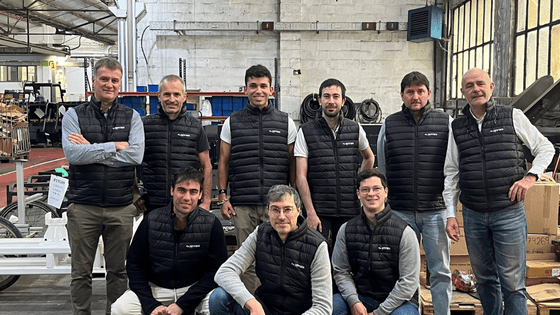
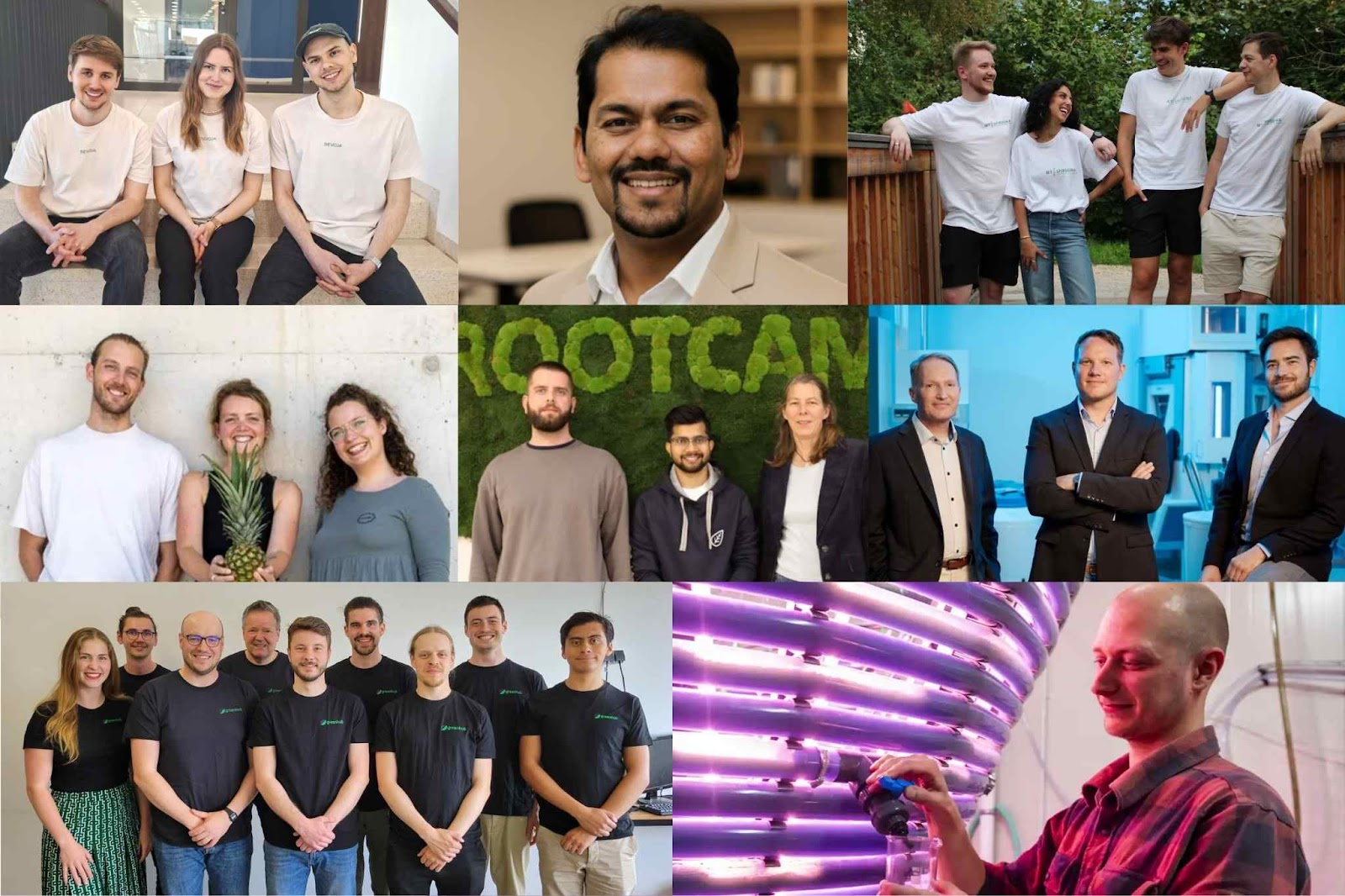
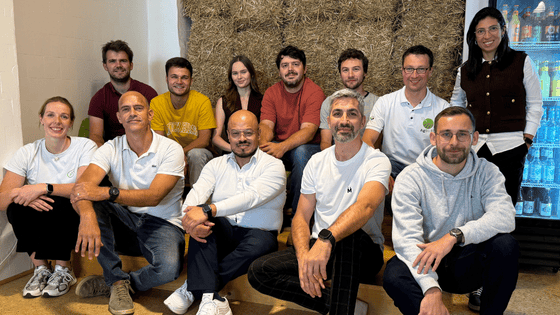
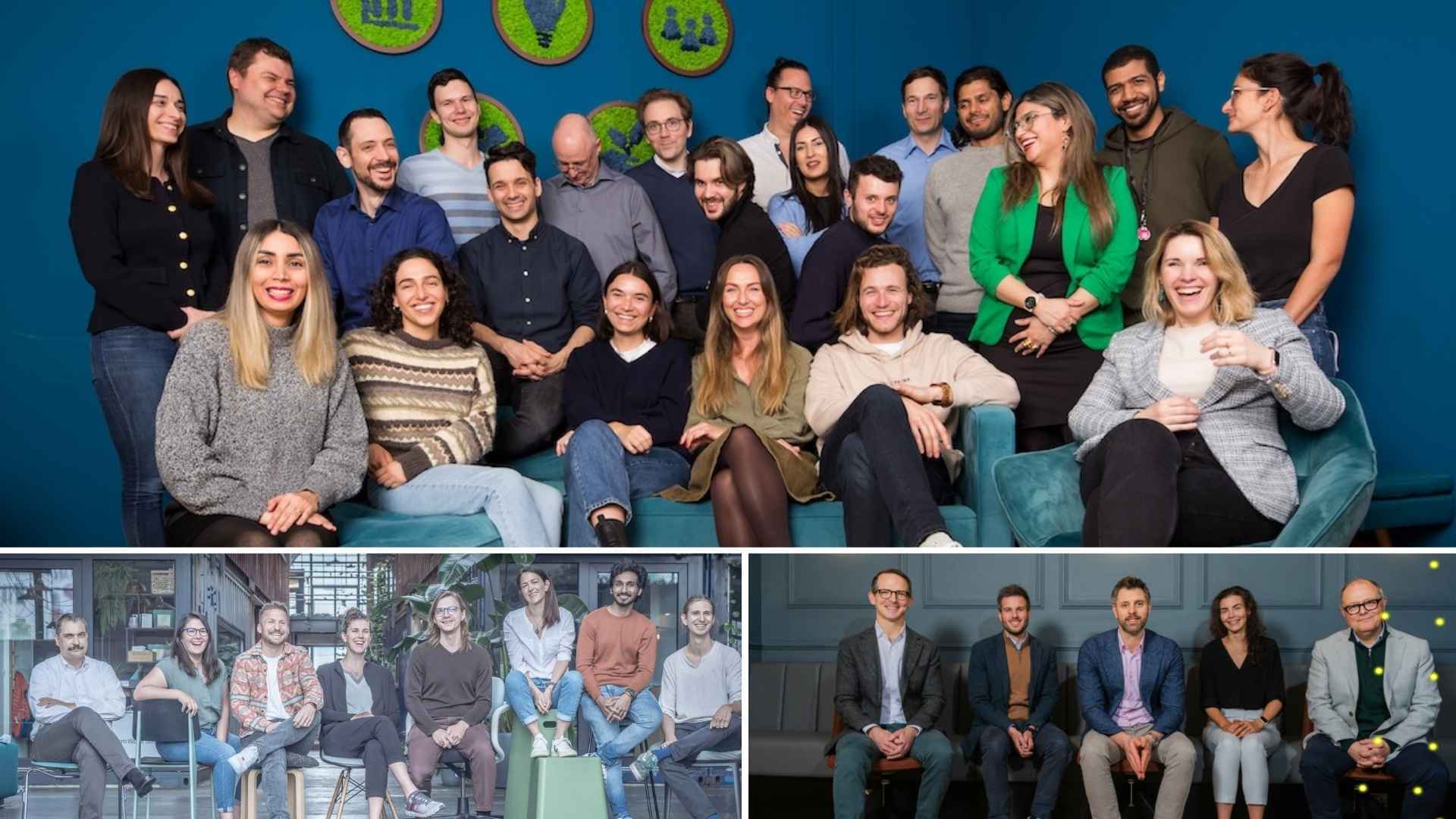
.png)
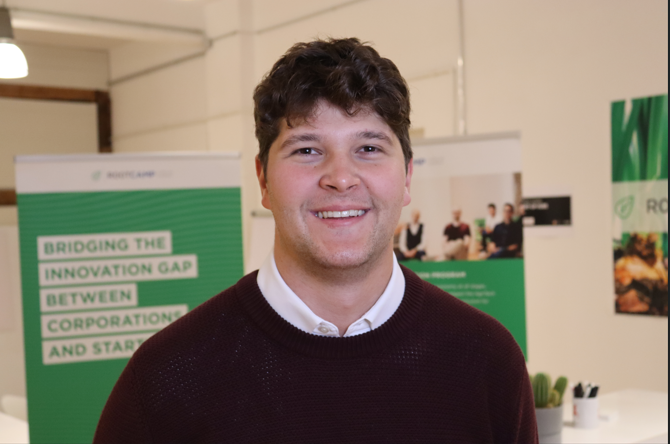
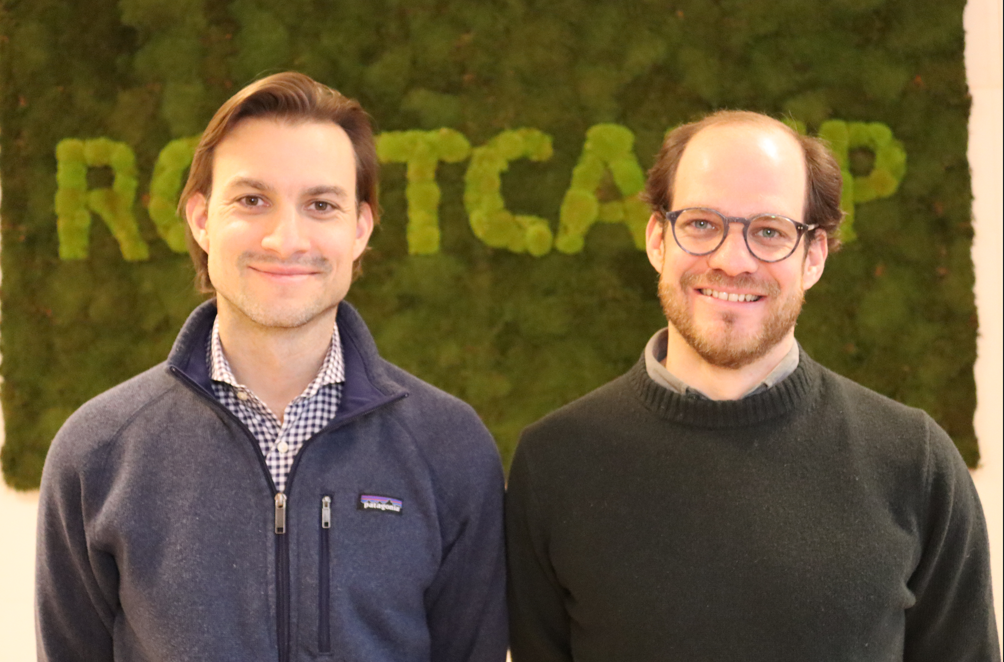
.jpg)
